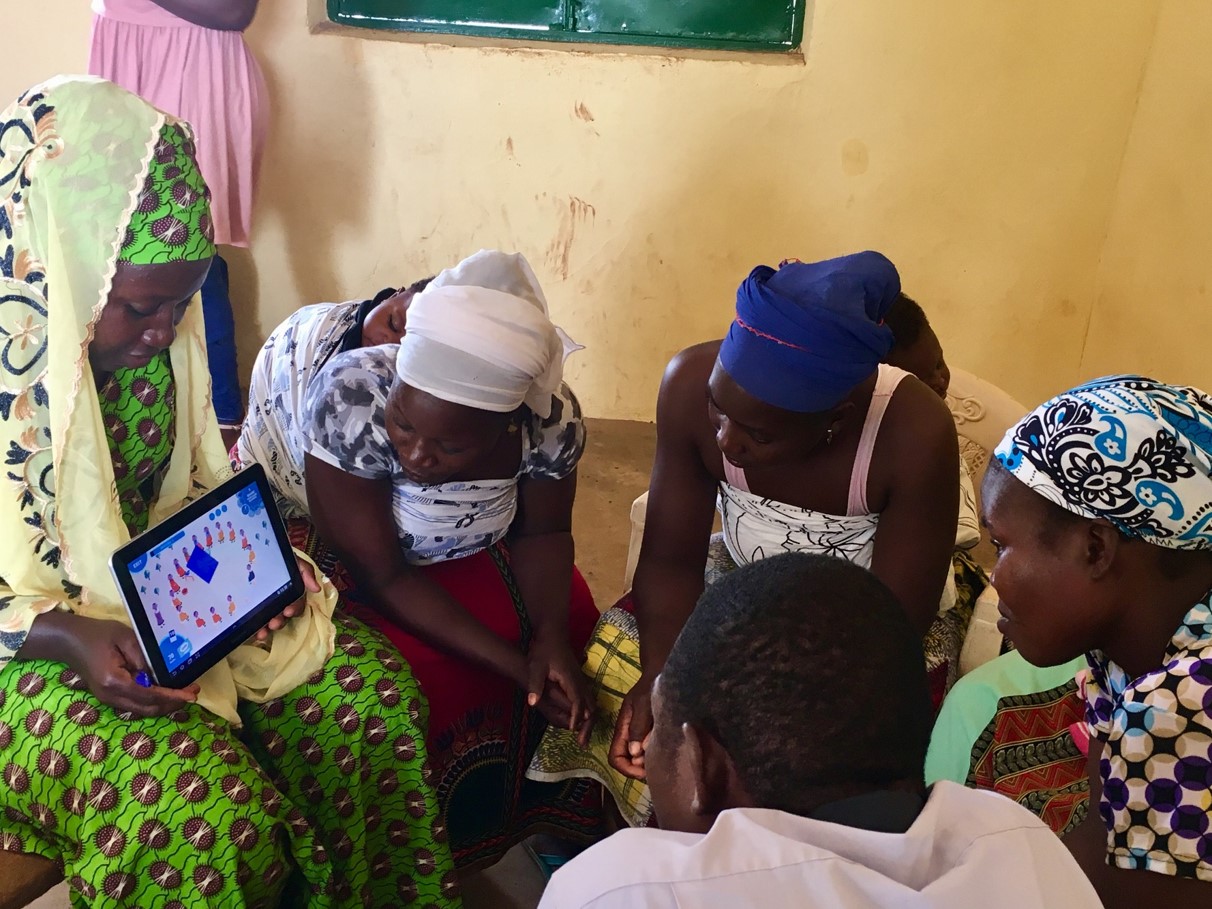Nov 19, 2020 | by Diana Dezso, Itad

Photo courtesy: DanChurchAid
This blog was originally published on the Itad website. We're pleased to share it here with the SEEP community.
#SEEP2020 was my first virtual conference. While I participated in countless webinars and online discussions, this five-day virtual conference offered quite a different experience. In this blog, I share what I took away from sessions in the Savings Groups at the 'Frontlines of COVID-19' technical stream. The sessions in this track explored how best to support Savings Groups (SGs) and their members during this crisis, and how to effectively engage them in community-level response efforts.
For full disclosure – I moderated one of the sessions, on ‘Scalable and Sustainable Digital Solutions for SGs’, featuring experiences from Zambia and Kenya from our Scale2Save and Savings at the Frontier partners.
What was different about this virtual conference, is the opportunity to check out all the sessions at my own pace, unlike at an in-person event where you might have to divide and conquer.
I liked that I could ask a question and come back later to many responses and comments, not only to my own but also to other participants’ questions. It has also been great to be able to go back into the conference space one week later and continue to engage with the content.
Now, of course, I missed seeing the participants and getting the industry gossip first-hand, I sure hope we can do so next year.
SGs were resilient and resourceful in designing workarounds that allowed them to continue to function despite lockdown measures and reduced economic activity. In many countries groups continued to meet, albeit in smaller cohorts of about 5 – 10 people, who, drawing on the trust and social cohesion they built over the months and years of working together, brought in their own savings and also those of the people who couldn’t join. In Uganda, SGs in rural areas operated at similar levels as lockdowns did not affect them like it affected members in urban areas, who lost their jobs and could not save.
The members in rural SGs who were involved in vegetable growing and small businesses in food markets kept doing business and reaped good profits because food markets were not closed down.
They kept meeting in small clusters and accessing small loans.1 In Malawi, one group realized that prices of maize were increasing and decided to use the group loan fund to buy and store maize which they later sold at a significant profit.2
Digital SGs provide an opportunity for members to save even if they cannot physically meet together but they have had a range of challenges. These included limited knowledge of how to use the technology among SG members, lack of access to phones, especially for women, low levels of digital financial literacy, and limited trust in the technology. These challenges are not new but it was interesting to see how different implementing organizations approached them. Here are a few of my highlights:
Despite challenges, the future of SGs is increasingly looking digital. Partnerships between various stakeholders are essential for a successful implementation.
For example, DreamStart Labs, a provider of digital solutions for savings groups, sees that many implementing organisations are now starting to think “digital first” in some of their planning. They are asking why they would ever train a paper-based group in the future, knowing that most groups will ultimately need to go digital in some way (starting with recordkeeping first, then moving to digital transactions later).
Our own session focused on the intricacies of partnerships required to bring these solutions to market from the perspective of two financial service providers (Vision Fund Zambia – a partner of Savings at the Frontier; and Postbank Kenya – a partner of Scale2Save). These partnerships involve SGs implementing organizations who are critical for SG formation and training, technology companies to develop digital solutions, mobile money operators; and of course, financial service providers. In many cases, developing digital solutions takes time and investment of resources but they are essential for scaling up SGs. Savings Learning Lab partners Scale2Save and Savings at the Frontiers continue to support their partner financial service provider (FSP) in developing viable business models for these digital solutions to reach scale and we will continue to share lessons learned.
Diana Dezso is Team Leader of the MasterCard Foundation Savings Learning Lab, an initiative implemented by Itad, in partnership with the SEEP Network. In this role she provides organizational and technical leadership on activities aimed to support learning among the learning partners and others in the sector through the generation, synthesis, curation and dissemination of knowledge. She has worked in senior leadership positions of international organizations including the SEEP Network and ACCION USA
Categories: Financial Inclusion Technology Savings Groups English Savings Groups Blog Blog 2020 WebinarsBlogs

1621 North Kent Street, Ste 900,
Arlington, VA, 22209
P 202.534.1400
F 703.276.1433
Website Photos: © mari matsuri
